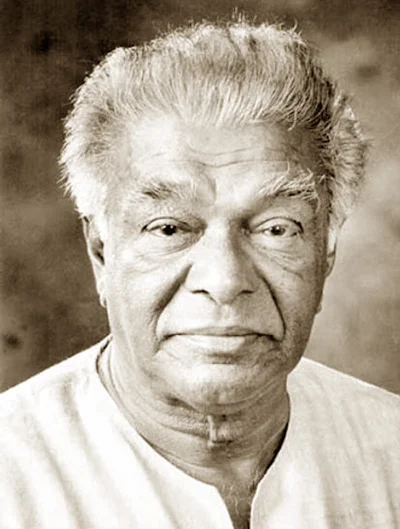Midweek Review
Christopher Columbus and Islam
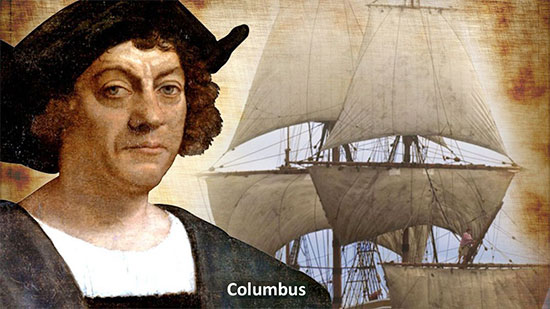
By Charles Ponnuthurai Sarvan
Epigraph: Despite the narrative handed down by generations of historians, “Columbus’s life simply cannot be understood without taking Islam into account” (Mikhail, p. 90).
What follows is taken from God’s Shadow: The Ottoman Sultan Who Shaped the Modern World by Alan Mikhail, Professor and chair of the Department of History at Yale University. Page reference is to this (Faber, 2020) publication. Professor Mikhail’s subject is the Ottoman Empire and Salem, (1470-1520), “the ruler of the world’s largest empire, sultan and caliph, God’s shadow on earth” (p. 353); grandson of Mehmet 11 who took Byzantine Constantinople in 1453, thereby sending shock waves through the Christian West. However, my focus here is on Christopher Columbus (1451-1506), born in the same year as his patroness, Queen Isabella of Spain, both of whom saw themselves as Matamoros, “slayers of Moors”, with “Moors” standing for all Muslims.
“Whether politicians, pundits and traditional historians like it or not, the world we inhabit is very much an Ottoman one” (p. 12) – I may add: If not directly, then indirectly. The word “Ottoman” is traced back to Osman (died 1320s) who led a loosely bound tribal group. “Every sultan down to the twentieth century” was a blood descendant of Osman (p. 6). Until it expanded into Muslim countries, the Ottoman Empire ruled more non-Muslims than Muslims. One factor leading to their success was that they were pluralistic, allowing minority entities maximum freedom possible: an accommodation particularly extended to Jews and Christians. Thessaloniki under the Ottomans was the largest Jewish city in the world (p. 166). The Ottoman political thinking was of a circle composed of four equally important parts: There’s no power without an army; no army without payment; no payment without prosperity; no prosperity without justice and good administration.
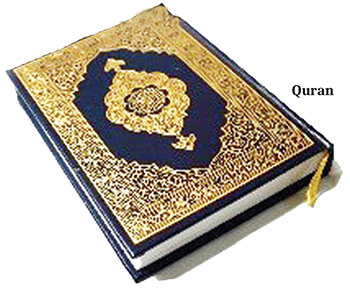 Alan Mikhail points out that Columbus lived at a time when the greatest menace to the Roman Catholic West was thought to be Islam, a greater danger than that posed by Martin Luther (1483-1546) and the Reformation. Luther argued that it was the moral depravity of Pope Leo X that enabled Islam to spread round the world (p. 371). He attacked the sale of indulgences whereby one could literally buy forgiveness and win God’s blessings – not only for oneself but for the dead: as the friar Johann Tetzel pithily expressed it, “as soon as the coin in the coffer rings, the soul from purgatory springs” (p. 375). Money, not goodness, purchased entry to heaven. An example of the indirect influence of Muslims is that the ‘sale of indulgences’ originated from Christian priests guaranteeing, in advance, absolution from all sin to Crusaders in the event that they died while fighting for the liberation of Jerusalem (p. 375).
Alan Mikhail points out that Columbus lived at a time when the greatest menace to the Roman Catholic West was thought to be Islam, a greater danger than that posed by Martin Luther (1483-1546) and the Reformation. Luther argued that it was the moral depravity of Pope Leo X that enabled Islam to spread round the world (p. 371). He attacked the sale of indulgences whereby one could literally buy forgiveness and win God’s blessings – not only for oneself but for the dead: as the friar Johann Tetzel pithily expressed it, “as soon as the coin in the coffer rings, the soul from purgatory springs” (p. 375). Money, not goodness, purchased entry to heaven. An example of the indirect influence of Muslims is that the ‘sale of indulgences’ originated from Christian priests guaranteeing, in advance, absolution from all sin to Crusaders in the event that they died while fighting for the liberation of Jerusalem (p. 375).
For Luther, Christians themselves, and not Muslims, were Christianity’s true problem, and the way was not to fight the Muslims but to struggle against Christianity’s own sins (p. 377). One is reminded of Islam’s Jihad or the saying of the Buddha: Greater in battle than the man who would conquer a thousand men, is he who would conquer just one — himself. Better to conquer yourself than others. When you’ve trained yourself, living in constant self-control, nothing can turn that triumph back into defeat. And Jesus admonishes that we must first ‘heal’ ourselves (figuratively) before setting out to ‘heal’ others (Luke, 4:16.) Obsessed with the war against Muslims, the destruction of Luther was postponed: ironically, the safety of the Protestant Reformation depended upon the strength of the Turkish armies (p. 373).
Returning to Columbus, the First Crusade against Muslims set out in 1096, to be followed by others: Columbus, we remind ourselves, was born in 1451. Growing up in Genoa, the boy Columbus would run to the docks to wave off men departing for Jerusalem. In short, Columbus grew up “steeped” in the rhetoric of the Crusades. At the age of thirteen, he was apprenticed as a sailor. Years later, he took part in the siege of Granada which Mohammad X11, the last Muslim ruler of Spain, surrendered on 2 January 1492. Legend has it that when Mohammad turned to take a last look at his beloved city (exquisite even today) his mother said: Yes, weep like a woman over a city you failed to defend as a man. About six months later (3 August, 1492), supported by Isabella, Columbus set sail on his voyage, perhaps the most momentous in human history.
“As every schoolchild learns, Columbus set sail with India on his mind’s horizon. Rarely, though, do schoolchildren learn why Columbus sought to cross the Atlantic” (p. 386). A common, if vague, explanation is that he was a Renaissance man, fired by the spirit of inquiry and adventure: disinterested (as distinct from uninterested) and secular. But Columbus sailed “imbued with a zeal for waging Christianity’s war against its foremost enemy – Islam” (p. 2). His was not some “secular Western march of progress”: Columbus sailed West on Crusade (p. 124). In order to capture Jerusalem (part of the destruction of Islam), he headed West, bypassing the Ottomans altogether (p. 102).
Columbus believed, like many others, that there was a Grand Khan in the East, who was a Christian. The Ottomans controlled the Mediterranean but if by sailing west, this Khan could be contacted and his help enlisted, then Jerusalem and Islam could be attacked from both sides. Columbus also believed in the existence of the Seven Cities of Cibola and their “vast repository of gold that could fund the holy army needed to retake Jerusalem”. According to this belief, when the Muslims first seized Spain in 711, seven bishops and their followers escaped and built on an island seven cities fashioned entirely of gold (p. 95). This island was thought to be somewhere in the West, and the failure to find it, rather than destroying the fantasy, “only served to fuel hopes even more” (p. 96). Columbus set sail determined to find it and, with that wealth, fight Islam.
His obsession with Muslims led Columbus to identify Taino weapons as “alfanjes”, derived from Arabic for “a curved metal scimitar inscribed with Qur’anic verses” (p. 131) – even though the Taino had no iron and knew nothing about the Qur’an! (The Taíno were the most numerous indigenous people of the Caribbean, inhabitng what are now Cuba, Jamaica, Haiti, the Dominican Republic, Puerto Rico, and the Virgin Island. By 1550, they were close to extinction.) The scarves of a group of indigenous women were compared to Moorish sashes, and offered as evidence of contact between “Asia” and Spain. Decades later, Herman Cortes wrote that the Aztecs wore Moorish (Muslim) robes, and that Aztec females resembled Muslim women (p. 131). Crusader Columbus spent his final years compiling a book about a Spanish messianic figure, one who would defeat Islam and convert the whole world to Christianity (p.138).
Muslim power led to other entirely unintended consequences. As a result of Columbus’s discovery, 90% of the native population died: never before in world history has genocide occurred on such a scale (p. 163). Then there was the appalling cruelty of the slave trade. In 1452, Pope Nicholas V issued a papal bull giving Portugal the right to enslave Muslims: “the first legal basis for the European enslavement of Africans” (p. 108). North and West Africa was Muslim, so slaves abducted from this region were Muslim. “Muslims led the first ever revolt against European slavery in the Americas” (p. 153). America was founded on violence, expropriation and genocide. As for the present, Professor Mikhail points out that, since “9/11”, white nationalists, most of whom are Christian, have unleashed far more terrorist violence in the USA than Muslims. It’s the USA which has invaded Muslim countries, and not the other way round: see pages 394 and 395.
In short, Professor Mikhail claims that “If we do not place Islam at the centre of our grasp of world history” (p. 12), we will “miss major features of our shared past”. The popular narrative about Columbus doesn’t mention Islam at all. In contrast, Alan Mikhail argues it had everything to do with that religion and its followers. His book offers a challenging perspective, and adds to our awareness.
Midweek Review
How Prof. Dewasiri’s FB post brought about Speaker Ranwala’s exit
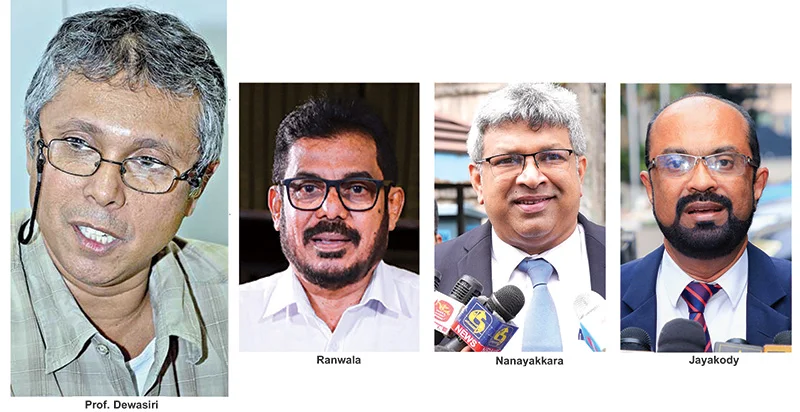
By Shamindra Ferdinando
Prof. Nirmal Ranjith Dewasiri was the first to question the National People’s Power government over Speaker ‘Dr.’ Asoka Sapumal Ranwala regarding his academic qualifications.
Dewasiri’s shock query caught the NPP by surprise. The academic questioned the government on his social media account on 05 Dec. The Parliament unanimously appointed Ranwala as Speaker of the Tenth Parliament on 21 Nov.
Dewasiri demanded that the government compel Speaker Ranwala to resign in case the parliamentarian deliberately provided false information. If the Speaker declined to do so, appropriate measures should be taken to remove him, Prof. Dewasiri declared, while finding fault with the new entrant for (i) falsely claiming to have a degree and (ii) believe he could hold such an important position regardless of the deceit perpetrated by him.
Prof. Dewasiri emphasized that the second fault was far worse than the first. One-time spokesperson for the Federation of University Teachers Association (FUTA) and advocate of the Yahapalana administration warned the government of far reaching consequences as it was badly exposed.
The government obviously didn’t take Prof. Dewasiri’s social media post seriously. Perhaps the top leadership felt that the issue at hand wouldn’t attract much public attention. However, the Opposition, both in Parliament and outside, launched an all-out attack.
The SJB declared its intention to move a no-confidence motion against the Speaker. In spite of the NPP having an unprecedented 2/3 majority in Parliament, the ruling party feared to face the Opposition move. The NPP could have easily routed the combined Opposition in Parliament, but to defend an obvious wrongdoer would have ruined President Anura Kumara Dissanayake’s (AKD) parliamentary group as they came to power, less than three months ago, promising to correct all the shenanigans that had been going on in the country, under the guise of democracy, since independence.
Beleaguered AKD had no option but to ask Speaker Ranwala to step down. The NPP could have avoided a lot of flak if the party acted immediately after Prof. Dewasiri’s disclosure. If not for the intervention made by the academic and a vociferous critic of wrongs done by the previous regimes, particularly to academics, Ranwala would still have been the Speaker.
The utterly dispirited SJB wouldn’t have inquired into Ranwala’s credentials under any circumstances. Thanks to Prof. Dewasiri, the Opposition received a mega opportunity to question the very basis of the NPP’s presidential and parliamentary election campaigns.
The SJB and new Democratic Front (NDF) had been rejected by the electorate to such an extent, even if they challenged Ranwala over his educational qualifications, the people may have ignored the issue as the rantings of a frustrated Opposition still licking the wounds of their routing at the polls. Prof. Dewasiri’s disclosure obviously delivered a knockout blow to the government.
Ranwala resigned on 13 Dec., just over a week after Prof. Dewasiri’s bombshell revelation. It would be pertinent to mention that just before the announcemnt of the Speaker’s resignation, President AKD told government media bosses that he wouldn’t protect any wrongdoer.
Having asked the electorate to reject unscrupulous political parties that had ruined the country, the NPP couldn’t have risked its political project to save Ranwala, one-time President of the Ceylon Petroleum Common Workers’ Union, until he was sent on compulsory retirement in March 2023 by the then Minister of Power and Energy Kanchana Wijesekera. The Wickremesinghe-Rajapaksa government accused Ranwala of obstructing fuel distribution services.
The NPP couldn’t have been unaware of Ranwala’s bogus claim. If Ranwala deliberately deceived the NPP, he should be dealt with harshly. Perhaps Ranwala should be asked to resign his parliamentary seat forthwith for deceiving the whole country, to pave the way for the NPP to fill that Gampaha District vacancy thereafter. Having vowed to clean up Parliament, the NPP cannot, under any circumstances, protect any wrongdoer.
But, corrupt political parties shouldn’t think for a moment that they can capitalize on the Speaker’s issue. The people rejected the SJB, NDF and SLPP (Sri Lanka Podujana Peramuna) twice this year as they earned the wrath of the people. It would be a grave fault on their part if they believed Ranwala’s ouster could strengthen their campaign against the government.
The NPP should, without delay, set the record straight. The issue is whether Ranwala deceived the NPP with regard to his doctorate, or the party knew all along that their CPC trade unionist didn’t have the academic qualification which he proudly flaunted.
House tricked
Premier Dr. Harini Amarasuriya and Foreign Minister Vijitha Herath, together, accompanied Ranwela to the Speaker’s chair. The Opposition accepted the appointment. The Premier proposed Ranwala, while Minister Herath seconded that proposal.
Premier Amarasuriya, Opposition Leader Sajith Premadasa, and Leader of the Sri Lanka Muslim Congress Rauff Hakeem congratulated National Executive Committee member Ranwala on that occasion.
One-time member of the Biyagama Local government body, Ranwala twice represented the JVP in the Western Provincial Council. According to Parliament website, Ranwala holds a degree in Chemical Engineering from the University of Moratuwa and a doctorate in Biochemistry from Waseda University, Japan.
To make matters worse for the NPP, the Opposition challenged Deputy Speaker Dr. Rizvie Salih’s specialist tag. Salih answered his critics. His FB post explained his nearly 40-year career, with 12 years with the public sector, though he is not a specialist.
The Deputy Speaker told Parliament, on Tuesday, that he is not a specialist and never used the title in his official letterheads, visiting cards and prescriptions. ” I have categorically told that I should not be called a specialist in propaganda material during elections,” he said. In other words, he had found fault with those who handled the propaganda campaign for the NPP
Interested parties also challenged the doctorate of Justice Minister Harshana Nanayakkara, another first time entrant to Parliament.
The controversy over Nanayakkara’s doctorate took an unexpected turn when the Parliament claimed that the doctorate had been inadvertently mentioned by Parliament. Let me reproduce the clarification issued by M. Jayalath Perera, Director Legislative Services / Director Communication (Acting), Parliament: Clarification Regarding the Title of “Dr.” mentioned before the name of the Minister of Justice, Attorney-at-Law, Hon. Harshana Nanayakkara, on the Parliament website.
“I would like to emphasize the following points in relation to reports published in the media regarding the title of ‘’Dr.’’ mentioned before the name of the Minister of Justice and National Integration, Attorney-at-Law, Harshana Nanayakkara, in the directory of Members of Parliament on the Parliament website.
“It is important to note that Hon. Harshana Nanayakkara has not indicated holding a doctoral degree in the information provided to Parliament. The appearance of the title “Dr.” before the Minister’s name was a result of an error in entering the relevant data. Accordingly, steps have been taken to rectify this mistake.
“I express my deepest regret for the inconvenience caused to the Minister of Justice and National Integration, Attorney-at-Law, Hon. Harshana Nanayakkara, in this regard.
“Also, the process of re-checking and updating the information of all Members of Parliament on the Parliament website is currently underway.”
But those who cannot stomach the NPP’s victory ask why didn’t Nanayakkara get that corrected himself if he was not entitled to be called “Dr.”? However, the Justice Minister lodged a complaint with the CID on Monday (16). The investigation can help ascertain whether some interested party conspired to discredit the NPP.
That clarification issued by Parliament meant that Ranwala provided false information to Parliament. According to Jayalath Perera, the parliamentary staff entered the relevant data provided by lawmakers, hence the only mistake on their part pertained to the Justice Minister’s data.
Power Minister Kumara Jayakody, too, lodged a complaint with police seeking an investigation into what he called an organized attempt to discredit him by challenging his academic qualifications. Both Nanayakkara and Jayakody speculated about the possibility of those who had been rejected by the people and their associates and supporters being involved in the high profile campaign.
The NPP cannot afford to disappoint 5.7 mn people who voted for AKD at the presidential election and 6.8 mn at the general election. The NPP increased its voter tally from 5.7 mn to 6.8 mn within a couple of weeks whereas the SJB was reduced to 1.9 mn votes from 4.3 mn at the presidential poll. The NDF was reduced to just 500,000 votes from 2.2mn at the presidential election while the SLPP increased its tally from 340,000 to 350,000. The Opposition is in disarray and in a pathetic situation.
Ranwala’s fiasco has sort of given the Opposition false hopes of a quick comeback. The forthcoming local government polls will show the ground situation. The NPP must keep in mind that in addition to the Ranwala affair, the failure on its part to provide sufficient relief to fuel and electricity consumers as promised has caused much public anger. Having repeatedly alleged that the previous government couldn’t substantially reduce fuel prices as the then Minister Kanchana Wijesekera pocketed the money, and having made those claims against the previous Minister in charge of the subject, the NPP brought down the price of a litre of Octane 92 by just 2 rupees much to the public’s resentment.
The pathetic handling of the rice mafia, too, didn’t do the NPP any good. Throughout the polls campaigns, the NPP repeatedly assured that the rice mafia would be appropriately dealt with and prices brought down and stabilized. The NPP also promised that rice wouldn’t be imported at all though imports would meet the tourist sector requirement. That much touted promise, too, was broken. However, the electorate, the writer is certain, doesn’t see any point in once again pinning their hopes on the utterly corrupt and dishonest lot rejected at the presidential and parliamentary polls.
Why Parliament shouldn’t defend wrongdoers
During the general election campaign, AKD explained why Parliament shouldn’t protect wrongdoers. The President said that the Yahapalana Parliament (2015-2019), during Karu Jayasuriya’s tenure as the Speaker, defeated a no-confidence motion moved against Ravi Karunanayake over the Treasury bond scams, especially after he told the Presidential Commission of Inquiry that probed it, he could not remember the person who gave him a luxury penthouse at Kollupitiya. Then in 2023 the Wickremesinghe-Rajapaksa government defended Keheliya Rambukwella when a no-faith motion was moved against him over corruption in the health sector procurement, the President said.
Having said so, AKD couldn’t have defended Ranwala in case the SJB handed over a no-confidence motion against him. In fact, the NPP has created an environment that may prevent those exercising political power from coming to the rescue of wrongdoers under any circumstances.
During Ranwala’s very short stint as the Speaker, he had the opportunity to receive several foreign dignitaries. Press releases issued by Parliament following those meetings referred to Ranwala as Dr. Ranwala.
South Korean Ambassador Miyon Lee paid a courtesy call on Speaker Ranwala on 04 Dec. at the Parliament complex. Secretary General of the Parliament Mrs. Kushani Rohanadeera, was also present on the occasion. This happened the day before Prof. Dewasiri exposed the NPP parliamentarian.
Ranwala, not aware of what was coming, addressed the newly elected members on 25 Nov., in Parliament, where he emphasized the responsibility on the part of newcomers (he, too, was a newcomer struggling to handle responsibilities for want of parliamentary experience) to familiarize with parliamentary procedures. Speaker Ranwala said that public expectations couldn’t be met unless they learnt about parliamentary procedures. Ranwala was addressing the inaugural session of the orientation programme for lawmakers.
The Parliament website quoted Speaker Ranwala as having emphasized the importance of organizing such workshops, noting that a thorough understanding of parliamentary traditions, constitutional frameworks, standing orders, and related parliamentary procedures is crucial for serving the people through the diverse debates conducted within Parliament.
Chinese Ambassador in Colombo Ambassador Qi Zhenhong was the first envoy to pay a courtesy call on Ranwala at the Parliament. The Chinese Ambassador conveyed the greetings of the Chairman of the Standing Committee of the National People’s Congress of the People’s Republic of China (Speaker of the Parliament of the People’s Republic of China) Zhao Leji, to the newly elected Speaker of the Tenth Parliament during the meeting.
The Chinese envoy was followed by Indian High Commissioner Santosh Jha. Jha paid a courtesy call on the Speaker on 28 Nov. at the Parliament.
The United Nations Resident Coordinator in Sri Lanka, Marc-André Franche, met Speaker Ranwala on 04 Dec.
In the wake of Prof. Dewasiri’s shocking disclosure, Speaker Ranwala received a high-level US delegation led by Assistant Secretary of State for the Bureau of South and Central Asian Affairs Donald Lu. The meeting took place on 06 Dec.
The delegation included Ms. Anjali Kaur, Deputy Assistant Administrator of the Bureau for Asia at USAID, and Mr. Robert Kaproth, Deputy Assistant Secretary for Asia at the US Department of the Treasury.
According to a press release issued by Parliament the meeting focused on Sri Lanka’s reform priorities and the critical role of the House in advancing the people’s mandate for accountability, transparency, and inclusive governance.
Ambassador of the United Arab Emirates to Sri Lanka Khaled Nasser AlAmeri was the next to pay a courtesy call on Speaker Ranwala. That meeting took place on 09 Dec. amidst a stepped-up campaign against Speaker Ranwala. The NPP seems to have operated on the premise that the controversy over the Speaker’s credentials would gradually fade away. But, the media pressed the Cabinet spokesperson Dr. Nalinda Jayatissa over the simmering serious issue. That controversy sort of overwhelmed the NPP that worked so hard to portray all other political parties, other than them, as corrupt to the core.
In fact, the NPP had nothing else but to depend on what it called a new clean political culture. Having impressed the electorate with nothing but promises and assurances that it would do the right thing, it couldn’t have a blatant liar as the Speaker.
If not for the political culture that had been introduced by the NPP, in the wake of Aragalaya in 2022, the false declaration made by Ranwala wouldn’t have been an issue at all. The people would have simply accepted it as just another lie. Our inefficient and useless Parliament had been so disgraceful in its conduct and encouraged public resentment that a Speaker’s false claim wouldn’t have caused a public furore.
The NPP’s failed bid to storm Parliament during the final push against President Gotabaya Rajapaksa should be examined taking into consideration the pathetic state of our Parliament. Some of those unscrupulous men who represented Parliament over the past two to three decades brought about the Parliament’s collapse. Instead of taking remedial measures, political parties allowed the deterioration to continue, unabated. Nothing can be as ridiculous as conducting student parliaments all over the provinces. What the Parliament really expected to achieve by promoting student parliaments at a time the very basis of the parliamentary system is under threat due to overall failure of the political party system.
Parliament must take appropriate measures to restore public confidence in the highest institution in the country. Ranwala’s affair proved beyond doubt that the Speaker, who is also the Chairman of the Constitutional Council, could manipulate the system. No one and no political party should be above the law. War-winning Sri Lanka had suffered unbearable losses for want of proper parliamentary control over public finance over the years.
Let us hope the NPP has learnt a hard lesson at the onset of AKD’s five-year term that would help the party to navigate choppy waters. The daunting challenges faced by a bankrupt country should prompt all political parties, represented in Parliament, to reach consensus on Sri Lanka’s response to the deal with the IMF, signed by Ranil Wickremesinghe. The issue the Parliament must grapple with is how to transform the sick national economy to make it possible for us to start repaying foreign debt in 2028 without making most of us absolute paupers, but many Lankans are already in dire straits economically.
The Parliament can begin by making the Supreme Court judgment on the economic crisis that led to Gotabaya Rajapaksa’s removal available to new members of Parliament. Of the 225 MPs, 162 are new entrants. The Supreme Court in Nov. 2023 issued a symbolic ruling that Rajapaksa brothers – including two ex-Presidents – were guilty of triggering the worst financial crisis by mishandling the economy.
In a majority verdict on multiple petitions filed by academics and civil rights activists, a five-judge bench of the Supreme Court ruled that the respondents, who all later resigned or were sacked, had violated public trust. But that verdict should be examined along with massive foreign loans taken by the Yahapalana government during the 2015-2019 period at high interests that contributed massively to the crisis.
Let there be no holds barred examination of the economic crisis and exposure of all responsible, regardless of their status. However, that wouldn’t be a reality unless the legislature fulfils its basic obligations in terms of the Constitution.
Let us also not lose sight of hidden hands, especially from the West who make matters worse through their cloak and dagger operations worldwide as also was put into operation here during Gotabaya Rajapaksa presidency, like even cutting off worker remittances from our banking system thereby we couldn’t even scrape together a few million dollars to clear even a shipment of cooking gas. They have done similar jugglery to so many other countries, even in our neighbourhood, as has been the case already in Bangladesh and Pakistan. Modi should not feel all that smug as we do not know what plots are being hatched against him.
Remember the uncompromising Aragalaya activists who were threatening to die for a system change in the country, but disappeared into thin air no sooner Ranil Wickremesimnghe was installed in the seat of power with the ouster of Gotabaya Rajapaksa by extra parliamentary means.
Midweek Review
Seeking cultural transmission between bodies
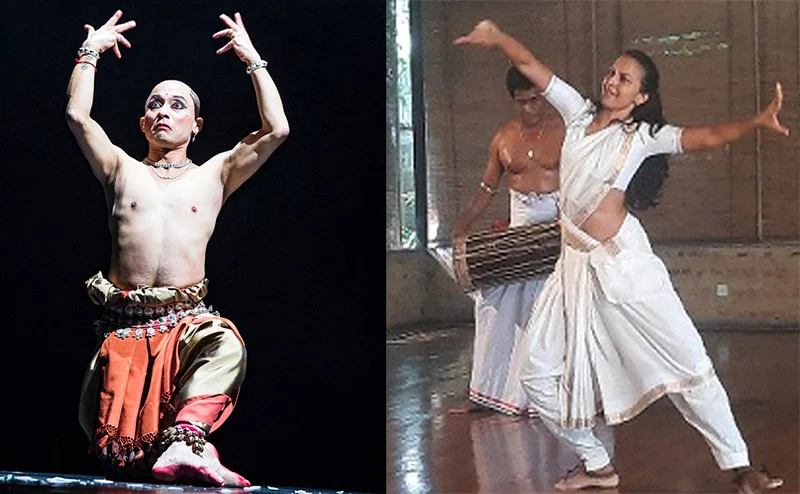
From Chitrasena to Akram Khan:
by Saumya Liyanage
Akram Khan is a world-renowned dancer, choreographer and the founder of Akram Khan Company (AKC) in the UK. He has been an impactful dancer and choreographer who was initially trained as a Kathak dancer during his apprenticeship under various Kathak Gurus in Asia and elsewhere. He and his dance company have created numerous dance productions that surpass the traditional boundaries. Akram Khan is a recipient of top awards including two Laurence Olivier Awards, the Bessie Award (New York Dance and Performance Award), the prestigious ISPA (International Society for the Performing Arts) Distinguished Artist Award, the Fred and Adele Astaire Award, the Herald Archangel Award at the Edinburgh International Festival, the South Bank Sky Arts Award, and ten Critics’ Circle National Dance Awards for his company.
With the initiative of the British Council in Colombo, the Akram Khan Dance Company contacted me a few months ago. The Legacy International Project Manager of the AKC, Varsha Kumar sent me an email informing me of an exciting project the dance company wanted to initiate in Jaffna. It was an upcoming collaboration between Akram Khan Company supported by the British Council Colombo to conduct an intense dance exchange workshop. This initiative facilitated a five-day intensive cultural transmission of Bharatanatyam dance conducted by Mavin Khoo, the artistic associate of the Akram Khan Company with a selected group of youth from Jaffna.
The idea was to continue and sustain the traditional dance forms and explore how they could be sustained and continued further through innovative practices. Mavin Khoo visited Jaffna for the first time to initiate this cultural transmission project with the hope of conducting this intense workshop on Bharatanatyam. Mavin Khoo, trained as a traditional dancer in Bharatanatyam in Malaysia, is a choreographer and the creative collaborator of Akram Khan. Mavin holds an MA in Choreography from Middlesex University and was a faculty member of the Dance Studies Department, School of Performing Arts at the University of Malta in 2014. He has been working as the rehearsal director of the Akram Khan Company and is exploring traditional dance and its contemporary relevance as a mode of human agency and provocation.
It is an ongoing work that the AKC initiated and this collaboration will continue further in future. Here is something interesting about what happened when Khoo, Varsha and their team came to Colombo after finishing the Jaffna Classical Intensive project. The British council director Edward Orlando invited me to a networking lunch in Colombo, where Khoo and Varsha were present. At lunch, I met some of the Sri Lankan dance community representatives. They included versatile dancers such as Upeka Chitrasena, Heshma Wignaraja, and Kapila Palihawadana. We shared our thoughts and ideas about dance and future collaborations during lunch. After this session, Upeka Chitrasena invited us to visit Chitrasena Dance Company. Akram Khan Company focused on helping peripheral dance groups to sustain and continue their traditional dance heritage and encouraged them to expand their possibilities of innovations, and the Chitrasena Dance Company in Colombo is also dedicated to preserving and continuing Sri Lankan traditional dance practices for posterity.
Dance as Ekstasis
- Chitrasena (1921-2005)
- Akram Khan
I am not a dancer, but I have been interested in dance and dance theatre throughout my academic career. Dance and theatre share many elements and it is the body that is central to the dancer and actor’s work. A few days ago, at the Faculty of Medicine, a session was conducted by the Centre for Meditation Research on how movement facilitates happiness and wellbeing. With my research collaborators, Kanchana Malshani and Chamanee Darshika, I demonstrated how movement is central to our understanding of the self and the world. The key question that I posed at the seminar is that movement allows us to understand our body, time and space and allows us to understand how we could connect with other bodies. Movement is the primal element of the body of the animated being.
What fascinates me here is that actor/dancer experiences time and space and the Other, in a different way than we experience the same phenomena on the daily basis. Dance scholar and Philosopher Sheets Maxine-Johnston argues that Man comprises temporality within himself, for he is such an ekstatic being. He is always at a distance of himself, always in flight” (Sheets-Johnston, 2015, pp. 16-17). This statement clearly indicates how the dance and dance experience override the objective time and space. Greek etymology of the word ekstatic means how one emancipates from her/his own self and transcends for the daily reality. In this sense, the moving body of the dancer, as I witnessed at the Chitrasena Dance Company, shows that dancers’ “being” is not in the daily reality when they intensely move their bodies in the space and time with the complex drum ensemble. Hence, I argue that our understanding about time and space is constructed through the physiological and mathematical understanding of time and space. The other is understood in a way that we as selves are constructed and defined through various lingual and cultural discourses. In this sense, the dancer/actor surpasses these constructed boundaries when the body becomes animated through dance and acting.
We sat at the Chitrasena Dance Company in the afternoon of Dec., 14 2024, and Khoo and Varsha were scheduled to leave Colombo a few hours later. An intense and galvanising performance was unveiled at the bare stage of Chitrasena Dance Company with Thaji Dias and the dance ensemble with seven master drum players. One after the other, a series of traditional dance repertoires unfolded before our eyes. Particularly Thaji Dias’ mesmerising and electrifying bodily motility of Kandyan, Low Country and Sabaragamuwa styles blended with intense rigor and precision. It was evident that some of the dance repertoires that Thaji and the lead male dancer performed were somewhat improvisational, bringing key elements of Kandyan dance into an ecstasy of performance. Both dancers seemed to be connected with each other through somatic means, communicating with facial and bodily gestures to trigger certain dance repertoire to perform together. I witnessed that both dancers were kinesthetically and sensorially joined through learned repertoires to perform a new interpretation of Kandyan dance form.
Cultural Transmission
These traditional dance performances triggered several important questions related to the dance body and cultural transmission of somatic knowledge. First, when Heshma, the artistic director and choreographer of Chitrasena Dance Company introduced a particular dance repertoire developed and choreographed by Vajira Chitrasena, she articulated this as a cultural transmission of choreographic knowledge which came through two generations of dancers. This statement triggered several important questions related to dance historiography. When Chitrasena and Vajira choreographed their works, it may have been done through the embodied knowledge that they possessed through what they learnt and mastered from the traditional Gurus. However, Chitrasena and Vijira may have understood that replicating traditional dance and its repertoire would not add any innovation to their dance interventions. My interest was drawn to this phenomenon and the question emerged on how these individual dance artists have distilled the traditional Kandyan dance to modernist choreographic works through adding innovative elements to their newly founded body notations.
Researchers who are working on the intangible cultural heritage mainly focus on how traditional dance and heritage can be transmitted. They are mainly concerned about how these traditions are continued and sustained through contemporary dance ensembles. However, the intangible heritage discourse has least focused on how these dance traditions have been changing through time and how these new elemental changes have been transformed and transmitted to the next generation of dancers. During our encounters with dance choreographer and artistic director of Chitrasena Dance Company, Heshma discussed how they “do” dance. Her articulation of “doing” dance rather than talking about dance explains how they transmit knowledge of somatic elements of dance through bodies. She said, “We rarely talk … we do not use language but we do dance”. One of the challenges posed by these issues is that the corporeal learning and embodied knowledge cannot be objectified in the researcher’s eyes. They are somatically embedded in the dancers’ bodies and are sedimented within their dance repertoires. A meticulous observation, analysis and categorisation will be required for someone to understand and identify how these dance elements have been changed and embedded in the dancer’s body. As I believe, new dance ethnographic research would be useful for researchers to extricate those elemental dance repertoires to understand how contemporary dancers’ bodies embody dance heritage in their somatic memories.
Conclusion
Akram Khan and his creative associate Mavin Khoo explore the possibilities of preserving traditional dance forms while seeking opportunities to revive them through innovative practices. The Chitrasena Dance Company working in the field of traditional Sri Lankan dance ambitiously is in search of a new era of Sri Lankan dance while passing the Chitrasena -Vajira dance heritage to the next generation of dancers and choreographers. Both companies share similar objectives in dance preservation and innovations within the highly contested Global cultural domains. Khan, Khoo, Chitrasena, Vajira, Thaji and other dancers embody a vast knowledge of somatic practices akin to their own dance traditions. Yet, these ekstatic bodies transcend the daily constructed selves, which carry the somatic knowledge of dance that are waiting to be disseminated in the bodies of the next generation of dancers. These areas of dance-ethnography should be further developed to understand the embodied knowledge and the somatic practices infiltrated through the generations of dancers and drummers. New dance-ethnography, dance historiography and new methodologies should be developed and applied to deepen our understanding of dance as an explicit knowledge of human expressions, emotions and ecstasy.
References
Sheets-Johnston, M. (2015). The phenomenology of dance. Philadelphia (Pensilvania, Estados Unidos) Temple University Press.
Company, Akram Khan. n.d. “Our Biographies.” Akram Khan Company. Cog. Accessed 2024. https://www.akramkhancompany.net/about-us/our-biographies/.
Company, Akram Khan. n.d. “Our Biographies.” Akram Khan Company. Cog. Accessed 2024. https://www.akramkhancompany.net/about-us/our-biographies/.
Nürnberger, Marianne. 2014. “Vajira – the First Professional Female Dancer of the Sinhalese Style.” Sri Lanka Journal of Humanities 40 (0): 99. https://doi.org/10.4038/sljh.v40i0.7232.
Raheem, Mirak. 2022. “Vajira: The Pioneering Female Dancer.” South Asian Dance Intersections 1 (1). https://doi.org/10.55370/sadi.v1i1.1475.
–––
Saumya Liyanage is an actor and professor in Drama and Theatre, currently working at the Department of Theatre Ballet and Modern Dance, Faculty of Dance and Drama, University of Visual and Performing Arts, Colombo, Sri Lanka. saumya.l@vpa.ac.lk
The author wishes to thank Himansi Dehigama for her assistance in preparing this article.
Midweek Review
Motherhood Triumphs
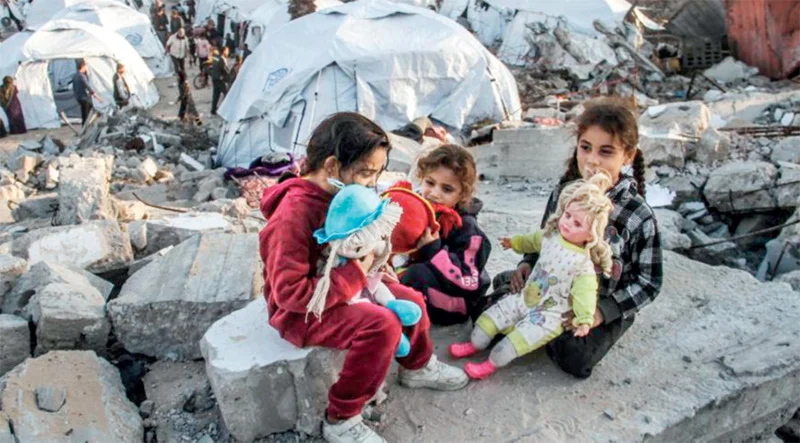
By Lynn Ockersz
Out of war’s destructive wastes,
And piles of mortal remains,
There emerge buds of promise,
Hardly into their teenage years,
That radiate childhood innocence,
And a motherhood of selflessness,
That would give fragile humans,
Their only security guarantee,
In a life rifled with uncertainties.
-

 Opinion3 days ago
Opinion3 days agoDegree is not a title!
-
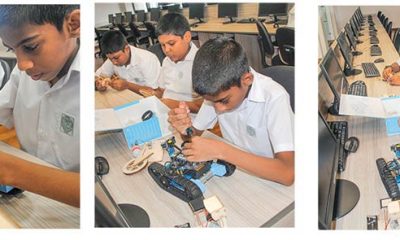
 Features6 days ago
Features6 days agoEmpowering the next generation: St. Benedict’s College brings STEM education to life
-
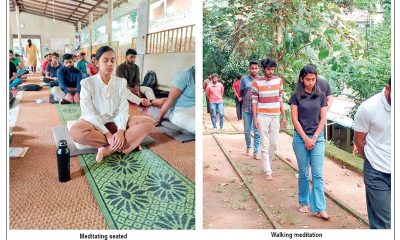
 Features4 days ago
Features4 days agoSpiritual Awakening of a Village
-

 News5 days ago
News5 days agoOver 300,000 Sri Lankans leave for overseas jobs this year
-
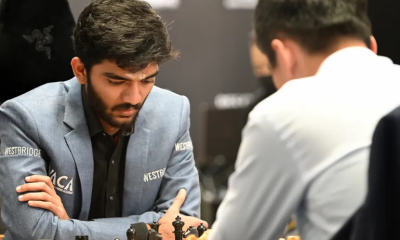
 Latest News4 days ago
Latest News4 days agoIndia’s Gukesh beats China’s Ding to become youngest chess world champion
-
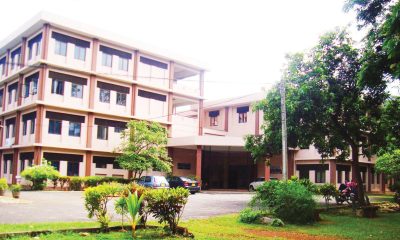
 Features4 days ago
Features4 days agoRevisiting the role of education in shaping shared futures
-

 Editorial7 days ago
Editorial7 days agoAll hat and no cattle?
-
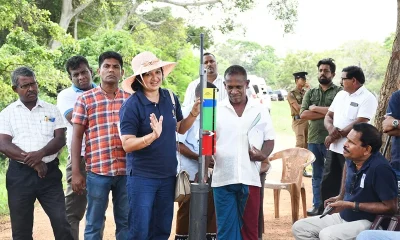
 News2 days ago
News2 days agoInnovative water management techniques revolutionising paddy cultivation in Lanka


